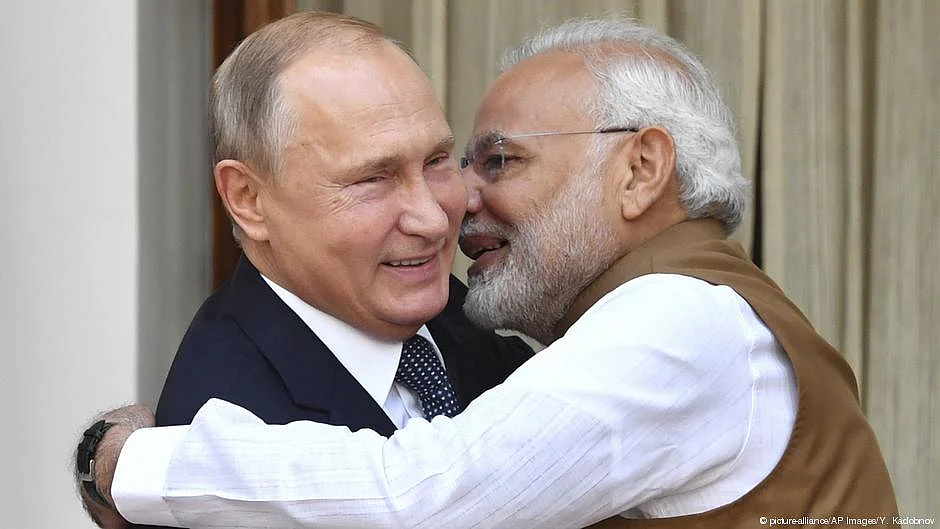Merz, Macron push sanctions; India under pressure on Russian oil
Since 2022, India has become one of Russia’s biggest energy partners

German chancellor Friedrich Merz and French President Emmanuel Macron have moved to sharpen Europe’s sanctions regime against Russia by calling for secondary sanctions on companies from third countries that continue to trade with Moscow.
Their proposal is aimed squarely at curbing Russia’s ability to finance its war in Ukraine by targeting energy revenues, the lifeline of the Russian economy.
Merz and Macron argue that while primary sanctions on Russia have limited its direct trade with the West, Moscow has been able to sustain oil exports by diverting flows to non-Western buyers, particularly in Asia.
By penalising companies in countries such as India, China, and others in the Global South that purchase or facilitate the trade of Russian oil, the Franco-German leaders want to close what they see as loopholes undermining Western sanctions.
They have also indicated readiness to act with or without Washington’s cooperation. The sanctions, if enforced, could include tariffs, financial restrictions, or limitations on access to Western markets and banking systems for companies found to be aiding Russia indirectly.
The message from Berlin and Paris is clear: sanctions must reach beyond Europe’s borders if Russia is to be effectively isolated.
For India, this rhetoric carries significant implications. Since 2022, India has become one of Russia’s biggest energy partners, with private refiners such as Reliance Industries and Nayara Energy, alongside state-owned Indian Oil Corporation and Bharat Petroleum, importing millions of barrels of discounted Russian crude.
These imports have helped India cushion its domestic energy costs, but they now risk drawing Indian refiners into the sanctions net.
Washington has already stepped up its tariff threats, accusing India of profiteering from cheap Russian oil while the Ukraine war drags on. India, in response, has criticised what it views as double standards highlighting that Europe continues to import Russian energy in certain forms even as it presses developing countries to stop.
Merz and Macron’s proposal therefore signals a new phase: one where European leaders are prepared to confront not only Russia but also major third-country buyers like India.
For New Delhi, the challenge lies in balancing its long-term energy security with the risk of being pulled into an escalating sanctions regime that could restrict access to Western trade and finance.
With Indian refiners expected to increase Russian oil purchases by up to 20 per cent in the coming months, Reliance and Nayara are likely to face scrutiny under the expanded sanctions framework that Merz and Macron are pushing.
For India, the stakes are not just about discounted crude, but also about navigating intensifying global fault lines that pit its economic interests against Western strategic goals.
Follow us on: Facebook, Twitter, Google News, Instagram
Join our official telegram channel (@nationalherald) and stay updated with the latest headlines
